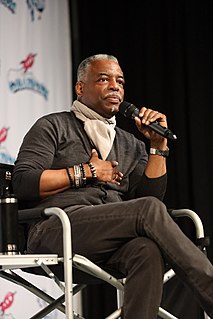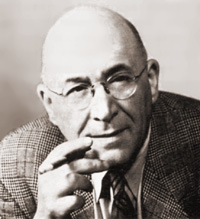A Quote by Eudora Welty
Both reading and writing are experiences--lifelong-- in the course of which we who encounter words used in certain ways are persuaded by them to be brought mind and heart within the presence, the power, of the imagination.
Related Quotes
Reading activates and exercises the mind. Reading forces the mind to discriminate. From the beginning, readers have to recognize letters printed on the page, make them into words, the words into sentences, and the sentences into concepts. Reading pushes us to use our imagination and makes us more creatively inclined.
I have used the words and expressions which my experiences from Minsk to Kharkov to the Don suggested to me. But I should have reserved those words and expressions for what came later, even though they are not strong enough. It is a mistake to use intense words without carefully weighing and measuring them, or they will have already been used when one needs them later. It's a mistake, for instance, to used the word frightful to describe a few broken up companions mixed into the ground: but it's a mistake that might be forgiven.
In every sound convert the judgment is brought to approve of the laws and ways of Christ, and subscribe to them as most righteous and reasonable; the desire of the heart is to know the whole mind of Christ; the free and resolved choice of the heart is determined for the ways of Christ, before all the pleasures of sin, and prosperities of the world; it is the daily care of his life to walk with God.
Music is made of what we do when we move, and we can only move in certain ways, in certain ranges of tempo because of the inherent constraints that our bodies offer, or you can call them 'affordances' - that's another word for me. It's a little more positive; doesn't make it seem like a limitation, but rather, a set of opportunities. You can say that that's part of music making, but there's also the imagination. The power of the imagination is kind of trumping - sorry to have to use that word.
The source of wisdom and power, of love and beauty, is within ourselves, but not within our egos. It is within our consciousness. Indeed, its presence provides us with a conscious contrast which enables us to speak of the ego as if it were something different and apart: it is the true Self whereas the ego is only an illusion of the mind.
In the final exam in the Chaucer course we were asked why he used certain verbal devices, certain adjectives, why he had certain characters behave in certain ways. And I wrote, 'I don't think Chaucer had any idea why he did any of these things. That isn't the way people write.' I believe this as strongly now as I did then. Most of what is best in writing isn't done deliberately.
What one thinks continually, they become; what one cherishes in their heart and mind they make a part of the pulsation of their heart, through their own blood cells, and build in their own physical, that which its spirit and soul must feed upon, and that with which it will be possessed, when it passes into the realm for which the other experiences of what it has gained here in the physical plane, must be used.
One piece of advice can be universally handed out, and it applies equally to speaking, understanding, reading, and writing. If in the course of any of these language activities, you run across words whose meaning or use baffles you, don't by-pass them. Look them up in the dictionary and familiarize yourself with them.
For we let our young men and women go out unarmed in a day when armor was never so necessary. By teaching them to read, we have left them at the mercy of the printed word. By the invention of the film and the radio, we have made certain that no aversion to reading shall secure them from the incessant battery of words, words, words. They do not know what the words mean; they do not know how to ward them off or blunt their edge or fling them back; they are prey to words in their emotions instead of being the masters of them in their intellects.
My mind goes really quickly and I tend to talk really fast, as you've probably heard, I sometimes lose track of my syntax, as I'm talking that fast. The only thing I try to do, well, it's slow down, but also I do something when I'm reading that's similar to when I'm writing a section, which is to really try to imagine you on the other side, in a certain way, as an intelligent, sympathetic presence who's rooting for me to tell you a good story.
As electricity is a great power in the world, so the inner mind is the greatest power available to you. Neither operates independently; both depend upon a separate agency to ignite them to action, and both bring helpful or harmful results according to the wisdom or ignorance with which they are directed.







































